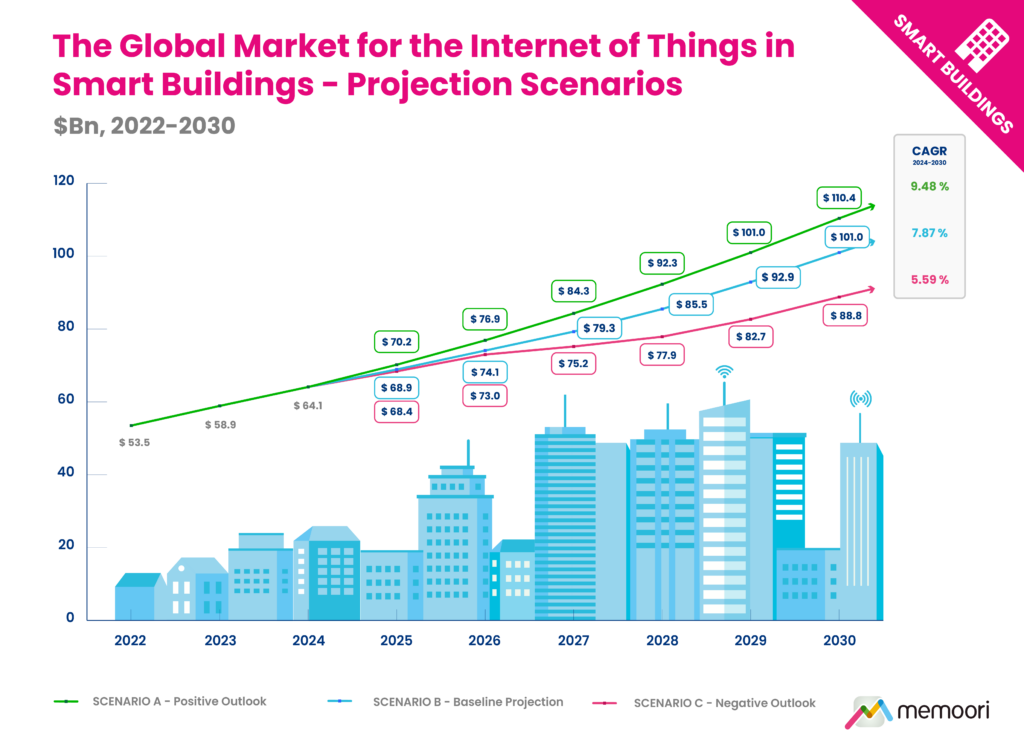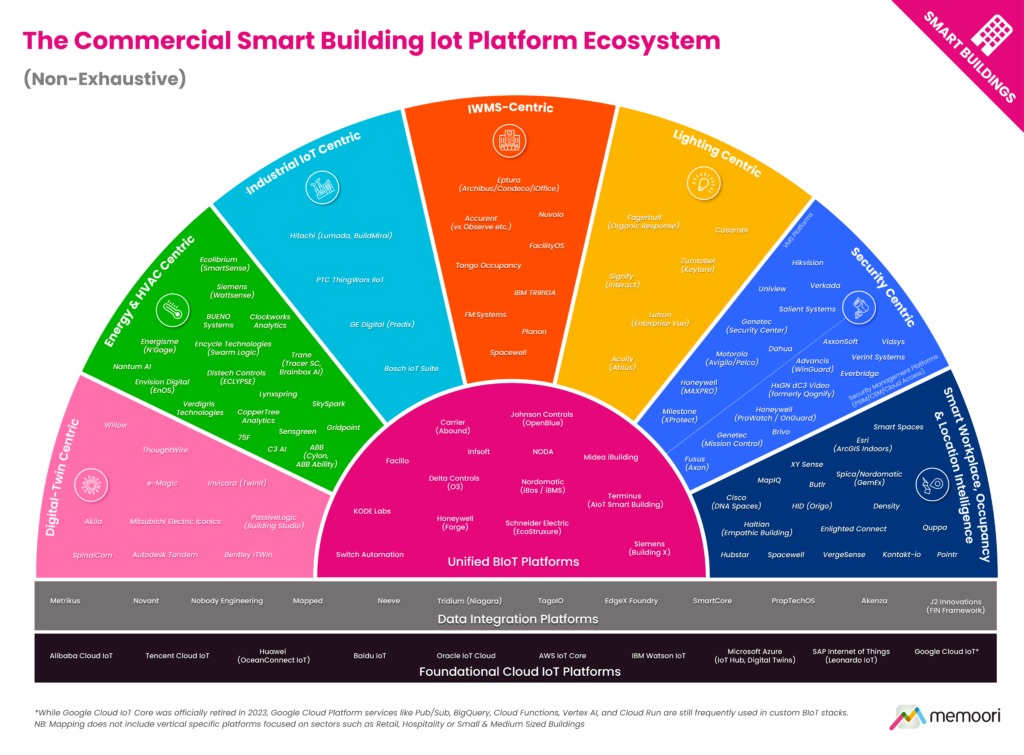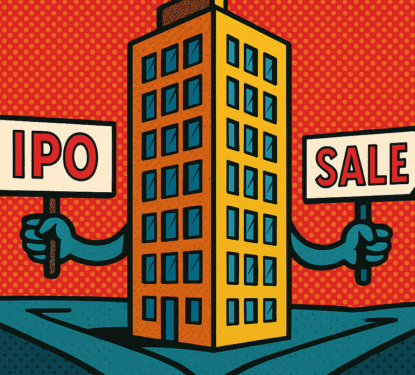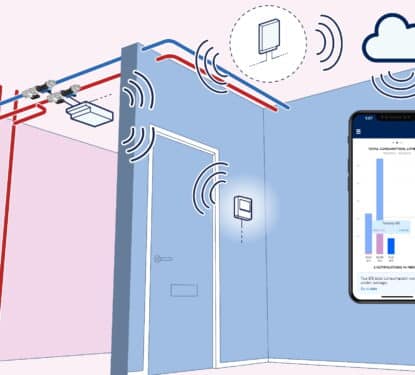As commercial buildings transform into responsive, data-driven environments, IoT platforms have emerged as the critical orchestration layer connecting previously isolated systems into unified networks.
Our new report, “IoT Platforms in Smart Commercial Buildings 2025 to 2030,” delivers actionable intelligence on this rapidly evolving ecosystem.
Market Growth Accelerated by Converging Drivers
The total global market for Building IoT (BIoT) in commercial buildings is projected to grow from $64.1 billion in 2024 to $101.0 billion by 2030, representing a compound annual growth rate of 7.87% under our baseline scenario.
This growth is being accelerated by converging drivers, including ESG reporting requirements, stricter energy performance standards, carbon reduction mandates, and changing workplace utilization patterns.
Property stakeholders are increasingly turning to IoT platforms to transform fragmented building data into actionable intelligence that drives operational efficiency, sustainability, and enhanced tenant experiences.

Key Market Trends Identified
Our analysis reveals several transformative shifts that will define the smart building landscape through 2030:
- IT/OT Convergence: The traditionally separate domains of building operations and information technology are rapidly merging through cloud-based platforms that provide unified management of everything from energy systems to space utilization.
- Open Architectures: The industry is moving from proprietary systems toward open, modular architectures that prioritize interoperability through standardized data models and API-first designs.
- Hybrid Edge-Cloud Computing: Smart building IoT platforms are evolving beyond centralized cloud systems to sophisticated hybrid architectures that balance real-time control at the edge with portfolio-wide analytics in the cloud.
- AI-Driven Autonomy: Artificial intelligence is transforming buildings from basic automation to predictive and increasingly autonomous operations, particularly in energy optimization and space management.
- Service-Oriented Models: The market is shifting from capital-intensive purchases to flexible, outcome-based subscription services that lower barriers to adoption while delivering measurable results.
IoT Platforms Competitive Landscape
The report provides a detailed analysis of the competitive ecosystem, including foundational cloud providers, data integration platforms, and specialized Building IoT solutions. Our research identifies how major players such as Carrier, Delta, Honeywell, Johnson Controls, Schneider Electric, Siemens, Trane Technologies, and innovative startups are positioning themselves in this rapidly evolving marketplace.

Making Strategic Decisions with Confidence
For building owners, technology providers, facility managers, and investors, this report delivers actionable insights to navigate the complex BIoT platform landscape. Our comprehensive analysis includes:
- Detailed market sizing across building types, regions, and application categories
- Evaluation frameworks for assessing platform capabilities and maturity
- Strategic recommendations tailored to different stakeholder groups
- Analysis of implementation challenges and mitigation strategies
- Future technology roadmaps and innovation trajectories
In an uncertain economic environment characterized by geopolitical tensions and supply chain challenges, our multi-scenario approach provides the nuanced understanding needed to make informed strategic decisions.
Our research shows how IoT platforms are helping to transform commercial buildings from static assets into responsive, data-driven environments that deliver improved operational performance, sustainability outcomes, and occupant experiences. Read more about the “IoT Platforms in Smart Commercial Buildings 2025 to 2030” report.



